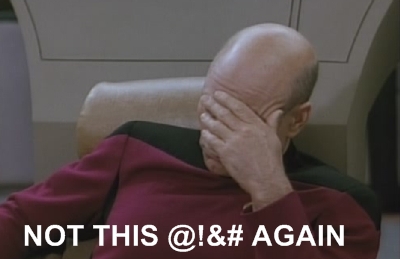- Aug 27, 2008
- 18,450
- 1,823
- 205
The idea of this thread can essentially be summed up by the quote in my signature.
"But whether the Constitution really be one thing, or another, this much is certainthat it has either authorized such a government as we have had, or has been powerless to prevent it. In either case, it is unfit to exist." - Lysander Spooner
Anyone who knows me knows that I'm as strict a constructionist as anybody on this board, but the truth is that the Constitution does not limit the federal government in any way shape or form and you can take that statement any way you want to.
Let's assume that those of us who believe in a strict interpretation of the Constitution are wrong. If this is the case then our "support" for the Constitution is unfounded and everything our government does and has done is perfectly constitutional. Therefore, if our goal is to limit government, the Constitution is certainly the wrong thing to put our trust into because it doesn't limit the government.
Now let's assume that we're correct in believing the Constitution was designed to strictly limit the federal government, and that much of what it does today is unconstitutional. Nothing changes. The federal government continues on as it always has in violation of the Constitution, and there's nothing we can do about it aside from a small victory here and there. In other words, we're correct but it doesn't matter because the Constitution doesn't stop the government from expanding regardless. So if the Constitution can't limit government the way it's supposed to what good is it really? None whatsoever.
The problem with arguing on behalf of the Constitution the way we do, and I know Jillian has brought up this point if not in these exact words, is that the Constitution was essentially adopted to increase the size of government in the first place. It was a scheme of the Hamiltonians, who were essentially monarchists, to create a stronger national government. Now it's true Hamilton didn't get everything he wanted from the Constitutional Convention, but he basically did since the Constitution has been open to interpretation.
This is why I think the Articles of Confederation were superior to the Constitution, and why I think the Constitution is essentially useless, regardless of which side is right, at limiting the government.
"But whether the Constitution really be one thing, or another, this much is certainthat it has either authorized such a government as we have had, or has been powerless to prevent it. In either case, it is unfit to exist." - Lysander Spooner
Anyone who knows me knows that I'm as strict a constructionist as anybody on this board, but the truth is that the Constitution does not limit the federal government in any way shape or form and you can take that statement any way you want to.
Let's assume that those of us who believe in a strict interpretation of the Constitution are wrong. If this is the case then our "support" for the Constitution is unfounded and everything our government does and has done is perfectly constitutional. Therefore, if our goal is to limit government, the Constitution is certainly the wrong thing to put our trust into because it doesn't limit the government.
Now let's assume that we're correct in believing the Constitution was designed to strictly limit the federal government, and that much of what it does today is unconstitutional. Nothing changes. The federal government continues on as it always has in violation of the Constitution, and there's nothing we can do about it aside from a small victory here and there. In other words, we're correct but it doesn't matter because the Constitution doesn't stop the government from expanding regardless. So if the Constitution can't limit government the way it's supposed to what good is it really? None whatsoever.
The problem with arguing on behalf of the Constitution the way we do, and I know Jillian has brought up this point if not in these exact words, is that the Constitution was essentially adopted to increase the size of government in the first place. It was a scheme of the Hamiltonians, who were essentially monarchists, to create a stronger national government. Now it's true Hamilton didn't get everything he wanted from the Constitutional Convention, but he basically did since the Constitution has been open to interpretation.
This is why I think the Articles of Confederation were superior to the Constitution, and why I think the Constitution is essentially useless, regardless of which side is right, at limiting the government.


